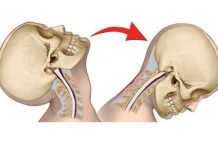Physical and Psychological Aspects of Whiplash: Important Considerations for Primary Care Assessment
Sterling M, Kenardy J.
Centre of National Research on Disability and
Rehabilitation Medicine (CONROD),
The University of Queensland,
Mayne Medical School,
Herston Road,
Herston, Qld. 4066, Australia.
m.sterling@uq.edu.au
Whiplash is a heterogenous and in many, a complex condition involving both physical and psychological factors. Primary care practitioners are often the first healthcare contact for individuals with a whiplash injury and as such play an important role in gauging prognosis as well as providing appropriate management for whiplash injured patients. It is imperative that factors associated with poor outcome are recognized and managed in the primary care environment at the crucial early acute stage post injury. This paper outlines the heterogeneity of the whiplash condition in terms of both physical (particularly the sensory presentation) and psychological characteristics and the relationships between these features. The clinical assessment of these factors will be explored as well as direction for appropriate early interventions. An early co-ordinated inter-professional management approach, particularly in patients with a complex clinical presentation involving central hyperexcitability and symptoms of posttraumatic stress will be required.







